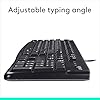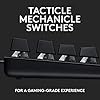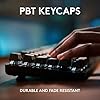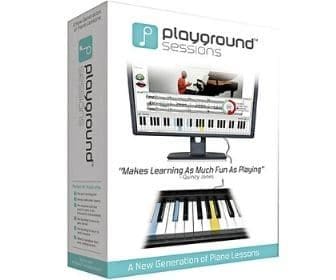Table of Contents
Introduction to Learning Piano Through Self-Study
Learning to play the piano is a rewarding journey that enhances not only musical abilities but also cognitive and emotional skills. With the advancement of technology and accessibility of resources, self-study has become a popular approach among aspiring pianists. This method allows individuals to learn at their own pace, tailor their learning process to their specific needs, and explore various music genres and styles. In this introduction, we’ll discuss the fundamentals of self-teaching piano, focusing on initial steps, essential resources, and effective strategies for beginners.
Setting Up a Self-Directed Practice Routine
To maximize the effectiveness of your self-study piano sessions, it’s crucial to establish a structured and consistent practice routine. Consider the following steps to set up your own self-directed practice routine:
YAMAHA P71 88-Key Weighted Action Digital Piano with Sustain Pedal and Power Supply (Amazon-Exclusive)
33% OffDonner DEP-20 Beginner Digital Piano 88 Key Full Size Weighted Keyboard, Portable Electric Piano with Furniture Stand, 3-Pedal Unit
20% OffUISCOM 88 Key Weighted Digital Piano - Wooden Desk Electric Piano Transforms Between Desk and Vanity - Progressive Hammer-Action Keyboard, Perfect for Beginners with MIDI Functionality
$559.99 (as of March 29, 2025 12:11 GMT -07:00 - More infoProduct prices and availability are accurate as of the date/time indicated and are subject to change. Any price and availability information displayed on [relevant Amazon Site(s), as applicable] at the time of purchase will apply to the purchase of this product.)Donner DDP-80 Digital Piano 88 Key Weighted Keyboard, Full-size Electric Piano for Beginners, with Sheet Music Stand, Triple Pedal, Power Adapter, Supports USB-MIDI Connecting, Retro Wood Color
24% OffStart by clearly defining your short-term and long-term goals. Whether it’s mastering a specific piece, improving technique, or learning new chords, having clear goals will help you stay focused and track your progress.
An effective practice routine requires a consistent schedule. Dedicate specific days and times each week for piano practice, ensuring that you can adhere to this schedule consistently. Aim for at least 15 to 30 minutes per day if you are a beginner, gradually increasing the duration as you progress.
Divide your practice time into segments that cover different aspects of learning. A balanced session might include warm-up exercises (like scales and arpeggios), technical drills, focus pieces (works you are currently learning), and repertoire maintenance (reviewing pieces you have already learned). This approach ensures comprehensive development and prevents neglecting any single aspect of your playing.
Utilize a variety of learning materials such as online tutorials, piano learning apps, sheet music, and theory books. Incorporating a mix of resources can provide a well-rounded learning experience and keep the practice sessions engaging.
Amazon Basics Wired Keyboard, Full-Sized, QWERTY Layout, Black
28% OffLogitech MK270 Wireless Keyboard And Mouse Combo For Windows, 2.4 GHz Wireless, Compact Mouse, 8 Multimedia And Shortcut Keys, For PC, Laptop - Black
$27.99 (as of March 29, 2025 01:08 GMT -07:00 - More infoProduct prices and availability are accurate as of the date/time indicated and are subject to change. Any price and availability information displayed on [relevant Amazon Site(s), as applicable] at the time of purchase will apply to the purchase of this product.)Logitech K120 Wired Keyboard for Windows, Plug and Play, Full-Size, Spill-Resistant, Curved Space Bar, Compatible with PC, Laptop - Black
Logitech G413 SE Full-Size Mechanical Gaming Keyboard - Backlit Keyboard with Tactile Mechanical Switches, Anti-Ghosting, Compatible with Windows, macOS - Black Aluminum
39% OffRegularly record your practice sessions. Listening to your recordings can highlight areas that need improvement and track your progress over time. This feedback is vital for adjusting your practice routines and goals accordingly.
The theoretical aspect of music and ear training are critical components of piano mastery. Dedicate part of your practice routine to learning music theory and performing ear training exercises. This knowledge will enhance your ability to read music, improvise, and compose.
Ensure to include short breaks during long practice sessions to prevent burnout and maintain efficiency. Also, periodically reassess your progress against your set goals to ensure you are on the right track or need to adjust your learning strategy.
Choosing the Best Beginner Resources for Self-Study
When starting out with piano self-study, selecting the right resources is crucial. Here are some recommended methods and tools that cater specifically to beginners looking to learn piano on their own.
Online Tutorials and Courses
Online platforms such as Flowkey, Simply Piano, and Playground Sessions offer interactive lessons that adjust to your playing speed and provide instant feedback. These platforms often include video tutorials, which are excellent for visual learners. They guide you from basic keys to complex pieces step-by-step.
Piano Learning Apps
Using apps on your smartphone or tablet can be a convenient way to practice. Apps like Yousician use the microphone of your device to listen to your play and provide instant feedback. They feature a gamified learning experience which is particularly appealing to younger learners or those who enjoy a dynamic and interactive approach to learning.
Books and eBooks
For those who prefer a more traditional approach, there are many beginner books that provide comprehensive piano lessons. Titles such as “Alfred’s Basic Adult Piano Course” or “Piano Adventures” by Nancy and Randall Faber come highly recommended. Additionally, eBooks available on devices allow for easy access and the ability to learn on-the-go.
YouTube Channels
YouTube is a fantastic free resource. Channels like HDpiano or PianoTV offer series of lessons for beginners. These platforms often provide tips on techniques and pieces to practice, and you can watch the videos as many times as needed, learning at your own pace.
Software and Virtual Instruments
If you lack access to a physical piano, software and virtual piano programs can be a good alternative. Software such as Synthesia works like a video game, which can make learning fun and engaging. They allow you to connect a MIDI keyboard and practice without needing a full piano setup.
Tips for Staying Motivated Without a Teacher
Common Pitfalls in Self-Studying Piano
Avoiding this pitfall: Start by setting clear, measurable goals (such as mastering a specific piece within three months). Break your goals into smaller, manageable tasks and schedule regular practice sessions, ensuring consistency and gradual progression.
Avoiding this pitfall: Invest time in mastering the basics of piano playing, such as scales, chords, and arpeggios. Use beginner books or online tutorials that focus on fundamentals before attempting more complex pieces.
Avoiding this pitfall: Regular practice is crucial. Aim for daily sessions, even if some are shorter. Consistency trumps lengthy, sporadic practice sessions. Tracking your practice in a journal can also provide motivation and accountability.
Avoiding this pitfall: Develop your ear by listening to a wide range of piano music. This practice will help improve your musical intuition and understanding of different styles and techniques.
Avoiding this pitfall: Focus on proper hand positioning and body posture from the beginning. Consider occasional lessons, either in-person or online, to correct poor habits that could lead to injury or inefficiency.
Avoiding this pitfall: Learning music theory is integral to understanding compositions and improving improvisation skills. Utilize resources such as online courses, apps, or books to embed theory learning into your practice sessions.
Avoiding this pitfall: While learning to read music is essential, also practice playing by ear and improvising. This balanced approach will make you a more versatile musician.
Avoiding this pitfall: Regularly record your sessions and critique them or share them with others for feedback. Join online forums or communities where you can get advice and support from other pianists.
When to Consider Supplementing with Online Courses
While embarking on self-study piano lessons, supplementing with online courses can be incredibly beneficial in several scenarios:
If you find yourself struggling with specific areas or topics in piano learning, such as reading music or understanding chord progressions, online courses can provide targeted learning materials and tutorials to help you overcome these challenges. Online platforms often offer detailed modules and step-by-step explanations, making it easier to grasp complex concepts.
Self-study can sometimes lack a structured approach, which is where online courses come in. These courses provide a clear learning path with sequentially organized lessons that ensure you build your skills in a logical manner. This is particularly useful for beginners who might not yet have the knowledge to plan their own study sequence effectively.
One of the limitations of self-study is the lack of feedback. Many online courses offer interactive components such as assessments, quizzes, and even real-time feedback from instructors. This can be critical for correcting mistakes and improving your technique.
Online courses can be accessed anytime and from anywhere, offering a level of flexibility that is not always possible with traditional piano lessons. Whether you’re traveling, have a busy schedule, or simply prefer learning at odd hours, online courses can accommodate your lifestyle.
If you wish to expand your musical repertoire and explore various styles and genres, online courses can be a treasure trove of resources. From jazz to classical to contemporary pop, specialized courses can provide insights and techniques specific to each style.
Conclusion
Mastering the piano through self-study is a rewarding, yet challenging journey that entails a combination of consistent practice, utilization of varied learning resources, and continuous self-motivation. By setting achievable goals, maintaining a regular practice schedule, and actively seeking out diverse educational materials and feedback mechanisms, learners can progressively improve their skills. Although this approach requires dedication and patience, it allows for personalized learning at one’s own pace, making the process both effective and fulfilling.















































